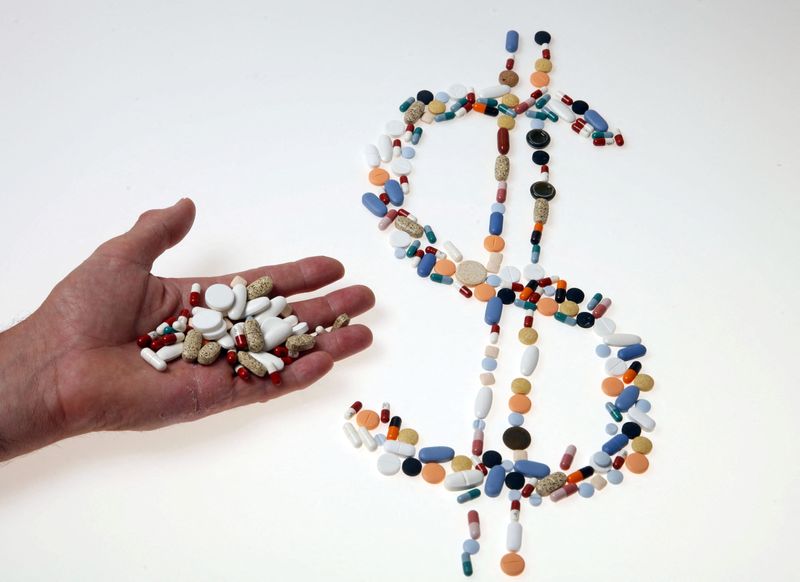By Patrick Wingrove and Michael Erman
(Reuters) – Four pharmaceutical companies involved in the first U.S. negotiations on Medicare program prices say they do not expect a major impact on their businesses after seeing secret price recommendations from to the government for their drugs that will be effective in 2026.
The chief executives of Bristol Myers Squibb, Johnson & Johnson, AbbVie and AstraZeneca, which have five of the 10 drugs selected for the first round of talks, explained their newly announced views on conference calls. a quarter.
The US Medicare health program spends billions of dollars each year on prescription drugs for the 66 million people age 65 and older or who are disabled. It is expected to publish discounts for 2026 to list prices of at least 25% on September 1.
“I think drug manufacturers were afraid (these prices) would be a big deal. But now, those who have reported or commented have actually said that it seems to be OK and in line with expectations, “UBS analyst Trung Huynh said in an interview. .
Under President Joe Biden’s Affordable Care Act, signed into law in 2022, the Medicare agency was required to identify the 100 most expensive drugs in the program and select 10 for price negotiations to begin. last year.
Bristol Myers CEO Chris Boerner on Friday said the company is increasingly confident it can manage the IRA impact on the blockbuster blood thinner Eliquis it shares with Pfizer, pending a government bid.
Still Boerner, co-CEO of AbbVie, echoed industry concerns that the government is “setting prices” under the program and that the move could hurt innovation.
Two analysts said they expect the government program to reduce the list prices of these drugs by between 50% and 60% depending on the opinions of drug manufacturers.
It is common for drug manufacturers to offer discounts from the list price based on sales volume, but those discounts are not publicized.
Several drugmakers along with industry advocacy groups PhRMA and the US Chamber of Commerce filed lawsuits to block the prices from taking effect, which were largely unsuccessful.
“As expected, the pricing was a misguided and political move,” said Nicole Longo, PhRMA spokeswoman.
He said the program operated without specifying how it included input from patients, providers and manufacturers on pricing, accusing it of putting government deficits ahead of patients.
AbbVie CEO Robert Michael said last week that the company included the expected sales of its blockbuster leukemia drug Imbruvica in the forecast.
“We’ve come out and said that even with that impact model, we still expect to deliver on our long-term vision,” said Michael.
J&J CEO Jennifer Taubert said the company’s long-term growth outlook “still looks very good for us today,” after seeing government-promoted discounts for its psoriasis drug best-sellers Stelara and Xarelto, among the top 10 nominees. for interviews.
JP Morgan analyst Chris Schott said in a note that Bristol and J&J’s comments suggest they got better deals than they initially feared.
The Centers for Medicaid and Medicare Services, which administers the program, did not respond to a request for comment.
AstraZeneca’s chief executive last week said the company expected a smaller impact because its diabetes drug Farxiga would face competition from cheaper drugs around three months after the new price comes into effect in 2026. .
At least five other drugs on the federal priority list, including Merck & Co’s diabetes drug Januvia and Amgen’s rheumatoid arthritis treatment Enbrel, are expected to face generic competition by 2029, according to a Guggenheim analyst. Partners Vamil Divan.
(Reporting by Patrick Wingrove and Michael Erman in New York; Additional reporting by Maggie Fick in London; Editing by Caroline Humer and Bill Berkrot)
#Pharma #companies #concerned #hearing #negotiated #Medicare #prices

